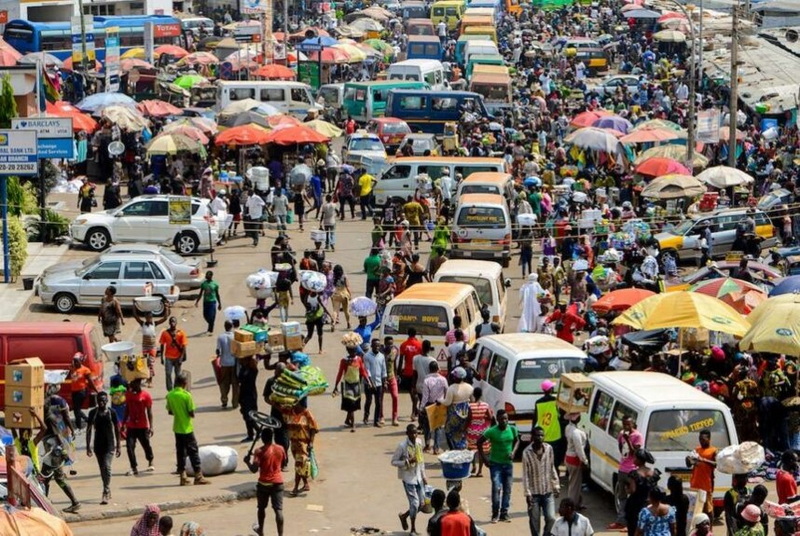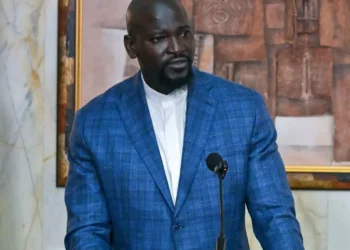Ghana’s quest for sustainable development is under serious threat as critical gaps in land management, employment creation, and social inclusion continue to stall progress.
This is the central warning from the 2024 Ghana Social Development Outlook (GSDO) report released by the Institute of Statistical, Social and Economic Research (ISSER) of the University of Ghana. The report paints a sobering picture of Ghana’s social and economic trajectory, calling for urgent, evidence-based reforms to address systemic challenges undermining national development.
The GSDO 2024 report highlights a disturbing disconnect between the state and the dominant housing sub-sector: self-builders, who account for 90% of the 45,000 housing units delivered annually. These are ordinary Ghanaians who, often without institutional support, construct their own homes.
Despite their significant contribution to housing and local economies, self-builders receive minimal policy backing. Poor land access, weak urban planning, and inadequate infrastructure such as roads and drainage systems compound their challenges. Dr. Martha A. Awo, Head of ISSER’s Social Division, emphasized that these issues hinder Ghana’s potential to close the housing deficit, which exceeds two million units.
The report calls for comprehensive land reforms, infrastructure investment, and state-backed support systems to empower self-builders and ensure safe, affordable housing for all.
Youth Joblessness: A Crisis of Mismatched Skills
One of the most urgent concerns outlined in the report is youth unemployment, which remains perilously high. According to ISSER, the underlying cause is a disconnect between the skills being taught and the demands of the job market.
While initiatives like the Nation Builders Corps (NaBCo) and the Youth in Agriculture Programme have attempted to bridge the employment gap, the report finds their effectiveness mixed at best. It further criticizes the exclusion of youth voices in designing these interventions and notes a lack of decent work standards.
ISSER recommends reforms that include fit-for-purpose training, sustainable job creation, and active youth participation in policy design. It also calls for tracer studies to assess the long-term impact of employment initiatives.
Meanwhile, Ghana has made commendable progress in water and sanitation, particularly under the Greater Accra Metropolitan Area Sanitation and Water Project (GAMASWP). More than 34,000 household toilets and over 6,000 water connections have been established.
However, the report warns that high connection costs, irregular water supply, and poor pressure continue to marginalize vulnerable communities. ISSER urges government and partners to address infrastructure gaps, make water and sanitation affordable, and strengthen community engagement to sustain the gains.
Climate Anxiety Rises Amid Poor Awareness
In a striking revelation, the GSDO 2024 shows that 88% of households are unaware of Ghana’s Nationally Determined Contributions (GH-NDCs)—a key climate action policy. Paradoxically, 55% of Ghanaians, especially the educated, report climate anxiety.
The report links knowledge of climate issues with increased anxiety but also finds that informed citizens are more likely to adapt to changing environmental conditions. It recommends the mainstreaming of climate education in schools and media, alongside the provision of psychological support and the strategic use of anxiety to drive behavioral change.
Despite accounting for 60% of labour in smallholder agriculture, Ghanaian women remain underpaid and under-resourced. Only 30% own land, and most lack access to credit, modern farming tools, and good roads—leading to significant post-harvest losses.
ISSER recommends ensuring equitable access to land and finance, involving women in agricultural decision-making, and improving infrastructure in farming communities to reduce inequality and increase productivity.
While Ghanaians still overwhelmingly support multiparty democracy, the GSDO report detects rising discontent due to poor public service delivery and economic hardship. Worryingly, a small but growing number of citizens are beginning to tolerate the idea of military rule, reflecting a serious erosion of democratic faith.
To reverse this trend, ISSER urges improved public service delivery, rethinking governance beyond elections, and resisting harmful external policy prescriptions that may not align with local realities.

A Call to Action
Speaking at the launch of the report, ISSER Director Professor Peter Quartey called on the private sector, policymakers, and civil society to embrace the report’s insights and collaborate in reshaping Ghana’s development agenda.
“We must ensure that research findings do not sit on shelves but are used to make meaningful change.”
Professor Peter Quartey
Mrs. Mary Awelana Addah, Executive Director of the Ghana Integrity Initiative (GII), who chaired the event, echoed this sentiment, stressing the need for Ghana’s development to be rooted in justice, inclusion, and public participation.
All in all, Ghana’s development engine is sputtering, and unless bold, inclusive, and data-driven reforms are embraced, the promise of shared prosperity may remain elusive.
READ ALSO: BoG Stress Test Uncovers Banks’ Credit Vulnerability Amid Strong Liquidity Defences



















